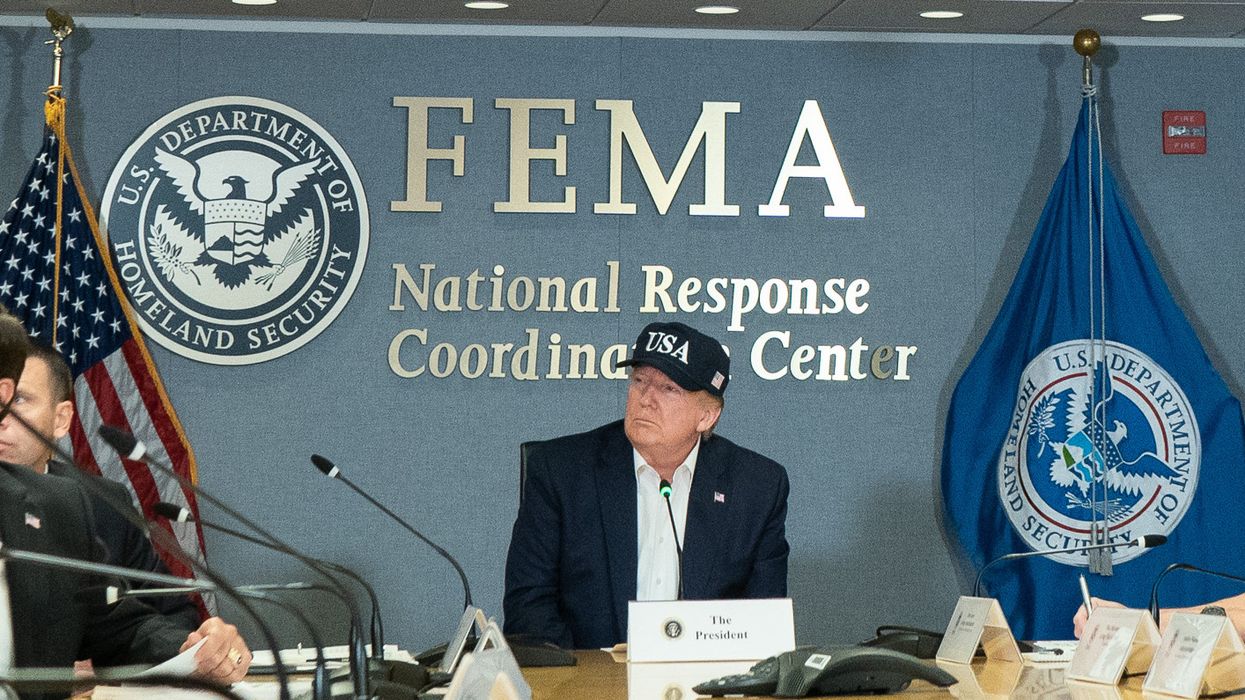Several days after returning to the White House, President Donald Trump announced that his administration would "begin the process of fundamentally reforming and overhauling" the Federal Emergency Management Agency (FEMA) — and consider "maybe getting rid of FEMA altogether." Trump proposes shifting emergency response to individual states.
Axios, in an article published on March 25, reported that Texas "could face greater financial burdens than most other states" if Trump "slashes federal resources for disaster relief."
That same day, The Hill published an op-ed from someone with extensive experience in emergency management: Kelly McKinney, who formerly served on the FEMA National Advisory Council and was also deputy commissioner at the New York City Office of Emergency Management. And according to McKinney, the United States' system of emergency response is in a state of chaos.
READ MORE: 'Clawback cruelty': How Trump is already destroying Social Security
"We need a 21st-Century crisis management system built not on slogans or hope, but on readiness, coordination and command," McKinney argues. " The president's executive order exposes the fatal weakness at the heart of our response doctrine: the absence of true ownership. If no one owns the job, no one does the job."
McKinney lays out a fictional scenario in which a massive 9.1 earthquake rocks the West Coast, inflicting widespread damage from Seattle to California. In that scenario, McKinney warns, the western states would be coping with "Trump's attempt to offload responsibility for disasters to state and local governments."
"That is exactly where we stand today, with a national disaster system consisting of 50 states and territories duct-taped together, each with its own structures, capabilities and methods," McKinney explains. "They have no obligation to help each other, and when they do, the process is slow and ad hoc. Relationships between states shift with political winds, and so, amid catastrophe, each state is left to fend for itself. If the Really Big One hit today, would we be ready? The answer is no."
McKinney argues that FEMA needs to be revitalized, not shut down.
READ MORE: 'Irreparable harm': Anger in swing state as Trump attacks federal 'workers under siege'
"The president has established a FEMA review council to propose ways to overhaul the agency," McKinney writes. "Rather than dismantling FEMA, the council must reimagine it as an elite federal agency capable of managing the increasingly complex and severe disasters of a turbulent age. A refocused and empowered FEMA would forge strong public-private partnerships, driving a response that is government-led but not government-centric."
McKinney continues, "It would become the national disaster machine we so desperately lack — fast, focused, relentless — bringing governors together in a supercharged mutual aid system that operates beyond politics and goodwill… Believe me when I tell you that the next catastrophe will start suddenly and with great intensity, with its biggest problems and greatest needs coming in its earliest hours. Those early hours — the so-called golden hours — will be a time of maximum chaos. The actions we take now will determine our fate."
READ MORE: 'Financial crisis': Fired official lays out ‘pernicious’ impact of Trump on swing state
Kelly McKinney's full op-ed for The Hill is available at this link.


